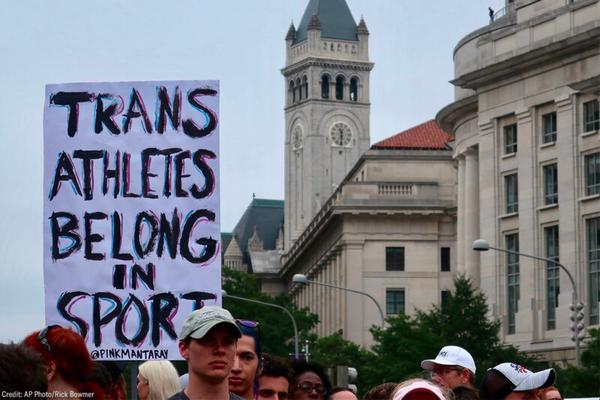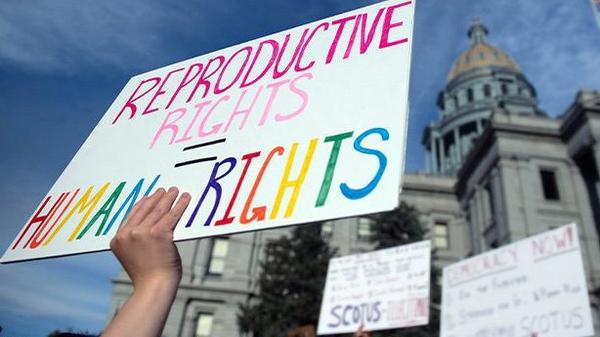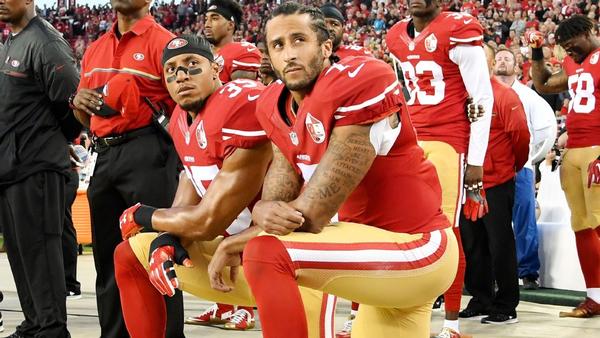📖 What to expect when it comes to Title IX
It’s no secret that the incoming administration’s policies will impact women’s sports well beyond championship-winning squads refusing to visit the White House. Let’s start with the impact on Title IX.
Title IX is a landmark civil rights legislation that prohibits sex-based discrimination in any educational program or activity receiving federal financial assistance, including athletics. The aforementioned BJK notably took to Capitol Hill in 1972 to testify on behalf of Title IX, joining other trailblazing champions of the legislation.
Title IX also goes beyond the playing field, with recent legislation expanding protections against sexual harassment and for trans students.
However, during his first term, Trump rolled out guidance that narrowed sexual harassment and investigation requirements. And when president Joe Biden later introduced legislation to expand Title IX protections for women and LGBTQIA+ folks, House Republicans worked against it. Terrifying.
🏳️⚧️ The impact on trans athletes

Source: Rick Bowmer/AP Photo
Twenty-six states currently restrict transgender athletes’ participation in sports, with transgender girls and women disproportionately affected by anti-trans bills. Many of these pieces of legislation prevent trans kids from playing sports that align with their gender identity.
And with an incoming American government that’s already made its stance on trans participation in sport abundantly clear, a spew of anti-trans rhetoric will undoubtedly follow the Republicans’ return to the Oval Office.
Thankfully, high-profile professional athletes like BJK, USWNT legend Megan Rapinoe, and former NBA superstar Dwyane Wade continue to speak out in support of the trans community and their pursuits on and off the field.
So what can allies do? Educate themselves and others. Transgender and nonbinary folk have been threatened by harmful legislation for decades, with sports just the latest battleground. Anti-trans rhetoric, specifically for trans athletes, is based on discrimination and misinformation — not facts, meaning education is vital to ensuring trans athletes’ right to play.
In the face of harmful anti-trans propaganda, critical thinking is integral as is recognizing that it isn’t just about the discriminatory bills or limiting participation — these decisions impact everybody. It’s more than time society stopped policing other people’s bodies.
👭 How the fight for reproductive rights impacts female athletes

Source: Center for Reproductive Rights
Female athletes have long advocated for maternal and reproductive rights. In 2020, the WNBA became the first pro women’s league in the U.S. to guarantee fully paid maternity leave, as enshrined in a landmark collective bargaining agreement (CBA).
There’s still progress to be made when it comes to maternity rights in the W, but that CBA paved the way for other pro women’s leagues, like the NWSL and PWHL, to include maternity rights into their agreements.And progress wouldn’t have been made without individual athletes sharing their stories. Tennis GOAT Serena Williams and track & field icon Allyson Felix are two of the most notable trailblazers in this realm, showing up for moms on and off the field of play.
There’s also the matter of reproductive rights, a concern that took center stage with the fall of Roe v. Wade in June 2022 and is top of mind once again. Leagues and teams spoke out against the overturning in the aftermath, with the WNBA and NBA even committing to “ensuring [their] employees have access to reproductive healthcare, regardless of their location.”
Meanwhile, the NWSL added a trade veto clause in their 2024 CBA, an athlete-empowering move that enables players to potentially avoid specific states.
Restricting access to abortions and reproductive rights will undoubtedly harm women’s sports, stripping athletes with already limited competitive windows of the ability to make decisions about their bodies and their careers. For more on this topic, listen to Thursday’s episode of The GIST of It.


 “`
“`


















